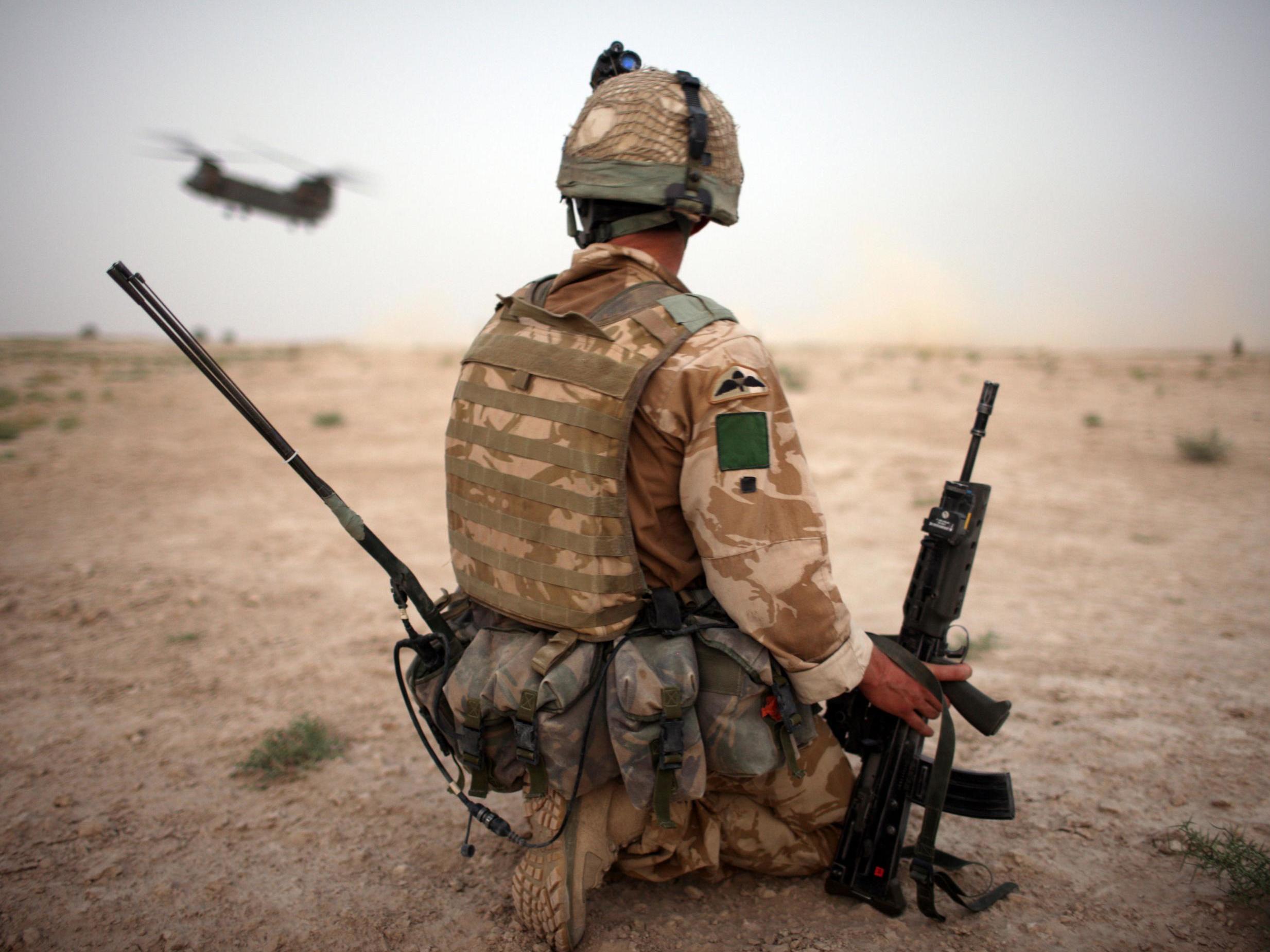Reciting meditation mantra may help treat PTSD in veterans, study suggests
Ancient Indian discipline used by The Beatles can be practised at home and may be a helpful alternative to most widely used therapy where soldiers are coached to relive combat experiences

Soldiers living with post-traumatic stress disorder (PTSD) benefit as much from transcendental meditation as they do from ”exposure therapy” where they are coached to relive their combat experiences, a study has found.
The ancient Indian practice involves reciting a mantra internally to enter a trance like state and alongside medication could offer an alternative to exposure therapy, which is currently the most widely used treatment.
Though it was popularised in the west by The Beatles the fact that meditation can be practised anywhere without tools, potentially makes it a closer fit for military personnel than other treatments, experts said.
“Historically, the benefit of exposing people with PTSD to traumatic memories has been seen as an important part of the therapeutic process,” said Dr Sanford Nidich, of the Maharishi University of Management, who led the study.
“However, evidence is increasingly supportive of non-exposure treatments also being beneficial.
“Because trauma exposure can be difficult for patients, similarly effective treatments that do not require exposure such as transcendental meditation could be appealing to veterans and other groups with PTSD.”
PTSD affects one in every seven soldiers deployed to combat duty in Iraq and Afghanistan, and is a disabling condition which affects soldiers physical health and financial security as well as their mental wellbeing.
More than 40 ex-British forces personnel have died by suicide this year, sparking an investigation by the Ministry of Defence. But the scale of the mental health crisis among ex-servicemen and women is poorly understood as many may not seek help.
Prolonged exposure psychotherapy is beneficial for many with the condition, but 30 to 50 per cent of people do not show clinically significant improvements.
Additionally dropout rates can be as high as 44 per cent because of the gruelling nature of confronting combat experiences.
Recent studies have looked at the potential for psychedelic drugs such as magic mushrooms to combat the condition.
But the latest research, published in The Lancet Psychiatry, split 203 ex-military participants diagnosed with PTSD between meditation, exposure therapy and educational classes for a three-month period.
The meditation group received weekly classes of 90 minutes alongside daily practice at home and 61 per cent saw clinically significant improvements in their condition.
This compared to 42 per cent – lower than is usually seen – of those given prolonged exposure therapy, and less than a third in the health education programme.
Overall, symptoms among the TM (transcendental meditation) group reduced by an average of 14.6 per cent – compared to 8.7 per cent for those who had prolonged exposure.
Commenting on the findings, also in The Lancet Psychiatry, Dr Vernon Barnes – who was not involved in the study – of Augusta University, Georgia, said meditation’s benefits would need to be demonstrated in larger trials.
But since patients with PTSD have high and lifelong medical costs, it is likely that it could lead to some savings.
Dr Barnes said: “More than a third of patients with PTSD do not recover even after many years, showing PTSD to be a chronic and costly illness to service members, their families, and society as a whole.
“When patients with PTSD do not respond to traditional treatment, new approaches should be considered.
“Consistent with military culture, transcendental meditation is self-administered, self-empowering, completely transportable, and inconspicuous.
“The technique can be practiced anywhere at any time, without specialised equipment or the need for personnel support.
Join our commenting forum
Join thought-provoking conversations, follow other Independent readers and see their replies
Comments